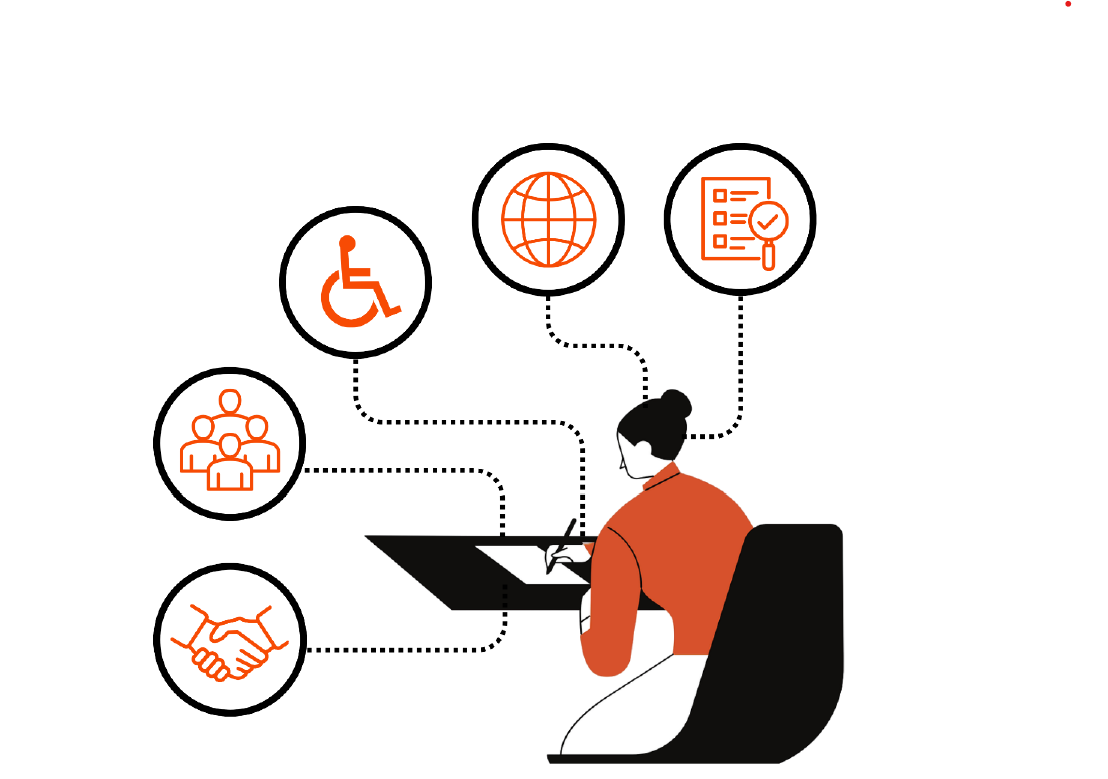Disability Hub Europe (DHub), led by the ONCE Foundation is proud to release the “Inclusive Reporting: A Business Guide to Disability and the European Sustainability Reporting Standards (ESRS)”.
This timely publication offers practical guidance for companies to integrate persons with disabilities into their sustainability strategies and disclosures, in alignment with the Corporate Sustainability Reporting Directive (CSRD) and the European Sustainability Reporting Standards (ESRS).
With the CSRD and ESRS now embedding disability as a key component of social sustainability, this guide equips sustainability officers and corporate leaders with the tools to meet legal obligations while unlocking the strategic value of inclusive sustainability reporting.
The Guide provides a comprehensive overview of how disability is addressed across ESRS standards, including ESRS S1 (Own Workforce), S2 (Value Chain Workers), and S4 (Consumers and End Users), and outlines actionable steps for inclusive materiality assessments, policy development, and accessible reporting.
Key highlights of the guide include:
- Clear mapping of disability-related disclosure requirements across ESRS standards.
- Understanding of disability inclusion from the Impacts, Risks and Opportunities perspective (IROs).
- Practical recommendations for engaging persons with disabilities in stakeholder consultations.
- Guidance on setting SMART targets for disability inclusion and accessibility.
- Insights into the strategic benefits of inclusive reporting, from talent attraction to market expansion.
Why this matters:
- Legal compliance: Disability is now a recognized reporting dimension under EU sustainability law.
- Strategic advantage: Inclusive practices enhance brand reputation, mitigate risk, and foster innovation.
- Future readiness: Early adopters of inclusive reporting will lead in a shifting regulatory landscape.
At a time when European institutions are discussing changes to the existing CSRD and ESRS, the publication of this Guide reinforces the notion that that burden reduction can also be achieved by providing clarity on the practical implications of existing frameworks. D-Hub trusts that the guidance provided with this document will help illustrate what disability means and how it can be integrated by companies that are reporting under ESRS.
The guide is intended for use by sustainability professionals, ESG teams, HR leaders, and corporate governance bodies.
Contributions to this guide include those coming from EFRAG’s team, as well as from representatives of different national business and disability networks in Europe.



